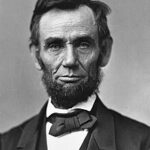The Lincoln Press Suppression Crisis
President Abraham Lincoln’s administration launched an unprecedented campaign against opposition media during the Civil War. Federal authorities shut down over 300 newspapers critical of the war effort. Military officials arrested dozens of editors and publishers without trial. This systematic Lincoln press suppression targeted Democratic newspapers across the North. 📰
Wartime Censorship Measures
Lincoln suspended habeas corpus to enable mass arrests of journalists. Military tribunals replaced civilian courts for press-related cases. Postmaster General Montgomery Blair banned opposition newspapers from mail delivery. These actions effectively silenced Democratic voices during crucial war debates. The administration justified censorship as necessary for national security. ⚠️
Constitutional Controversy
Critics argued Lincoln press suppression violated First Amendment protections. Democratic leaders accused Lincoln of establishing a military dictatorship. Even some Republicans questioned the constitutionality of media censorship. The Supreme Court later ruled some wartime measures unconstitutional in Ex parte Milligan. This decision came after Lincoln’s assassination, providing no immediate relief. 📊
Impact:
Immediate Democratic Consequences
Lincoln press suppression created a chilling effect on political opposition. Democratic newspapers that survived practiced self-censorship to avoid closure. Many editors fled to Canada or ceased publication entirely. The lack of opposition media weakened democratic debate during wartime. Public discourse became increasingly one-sided and partisan. 🔥
Long-term Constitutional Damage
The precedent established dangerous executive powers during emergencies. Future presidents cited Lincoln’s actions to justify their own censorship measures. World War I saw similar press restrictions under the Espionage Act. The Supreme Court spent decades clarifying First Amendment protections after the war. These cases shaped modern free speech jurisprudence significantly. 📉
International Reputation Crisis
European observers criticized America’s democratic backsliding during the Civil War. British newspapers highlighted the hypocrisy of fighting for freedom while suppressing it. Confederate propaganda effectively used Lincoln’s censorship to justify their cause. International support for the Union cause suffered among liberal Europeans. America’s reputation as a beacon of free speech took decades to recover. 🌍
